The Untold Struggles of Rajgarh's Muslim Jewelers: Mastering Art But Losing Identity
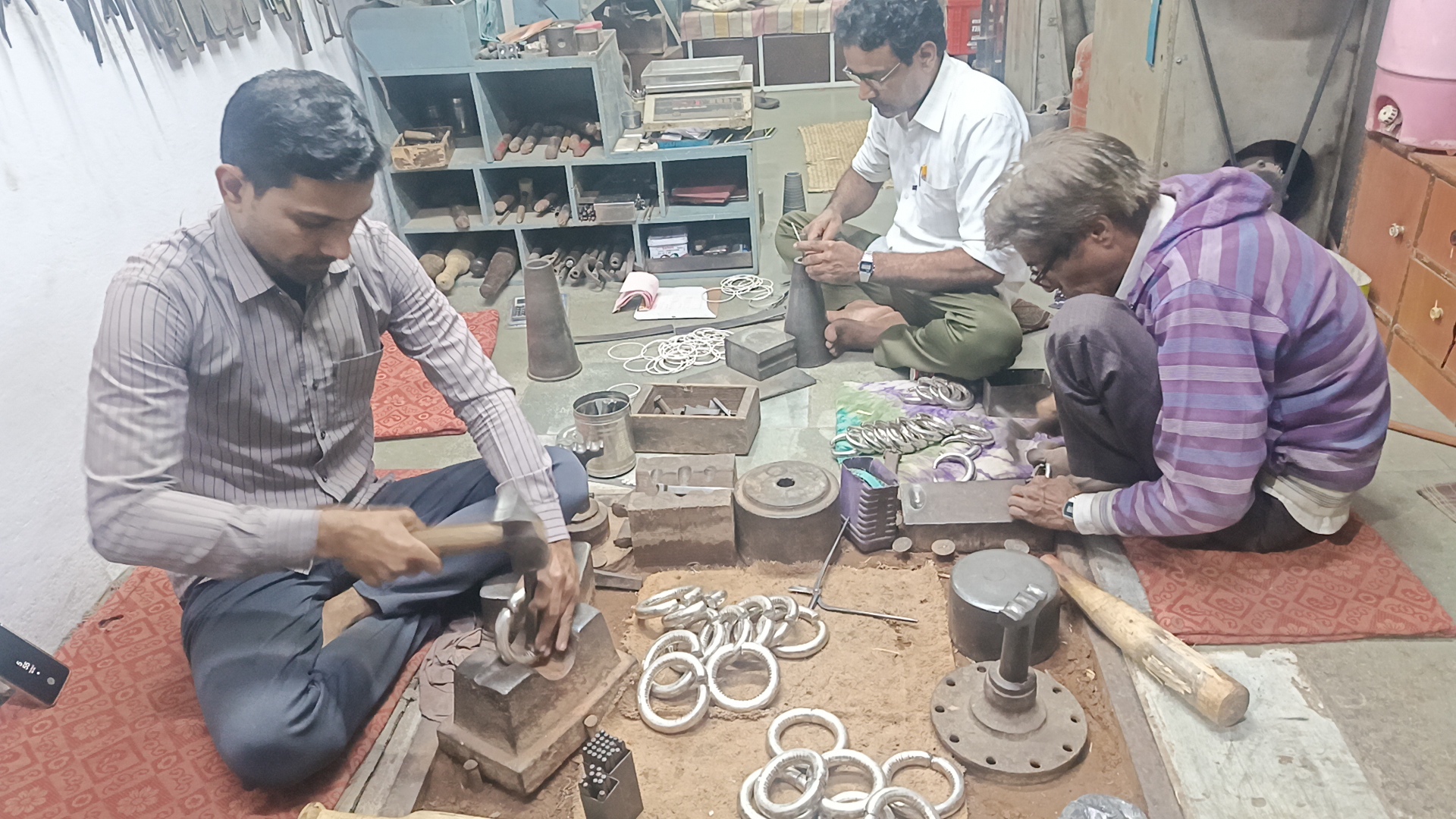
Abdul Waseem Ansari, TwoCircles.net
A legacy of craftsmanship is slowly fading into obscurity in the quiet lanes of Rajgarh, Madhya Pradesh. A family of Muslim jewellers, whose silver jewellery designs once captivated the rural heartland, have spent over six generations perfecting their art. Adored by countless women in villages, their intricate silverwork remains unmatched in the region. Yet, despite their unmatched skill and devotion, they have never been able to secure the recognition they deserve.
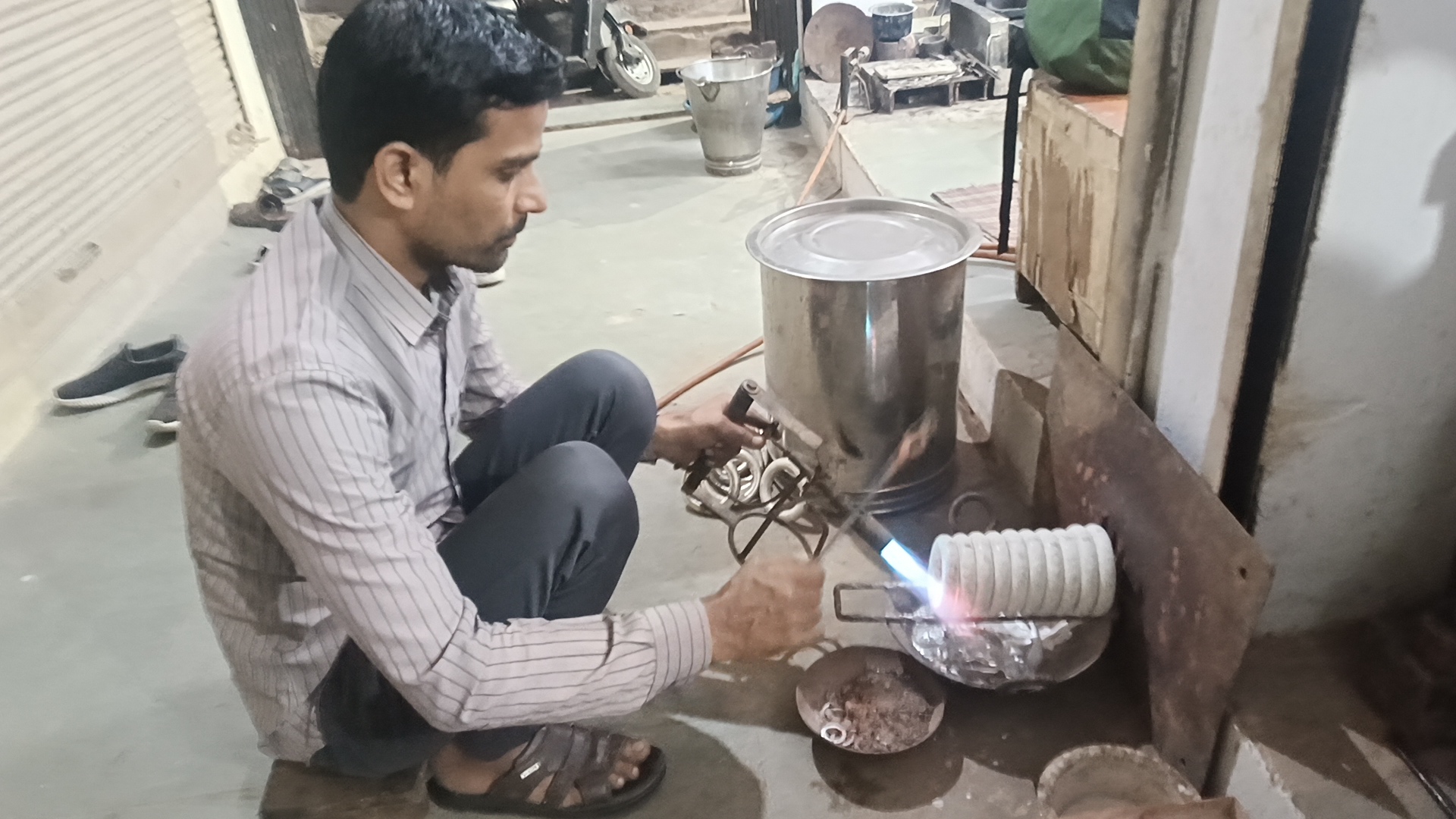
While they have brought distinction to larger jewellers, they struggle to establish an identity of their own. What began with hopes of creating a unique legacy now faces the grim reality of unfulfilled dreams, as the next generation begins to shy away from this art form.
Originally from Losal village in Rajasthan's Sikar district, Eliasuddin moved to Rajgarh's largest city of Biawara almost 55 years ago with his father and three brothers. They hoped to take their craft to new heights and believed that their unique art would bring them fame and success.
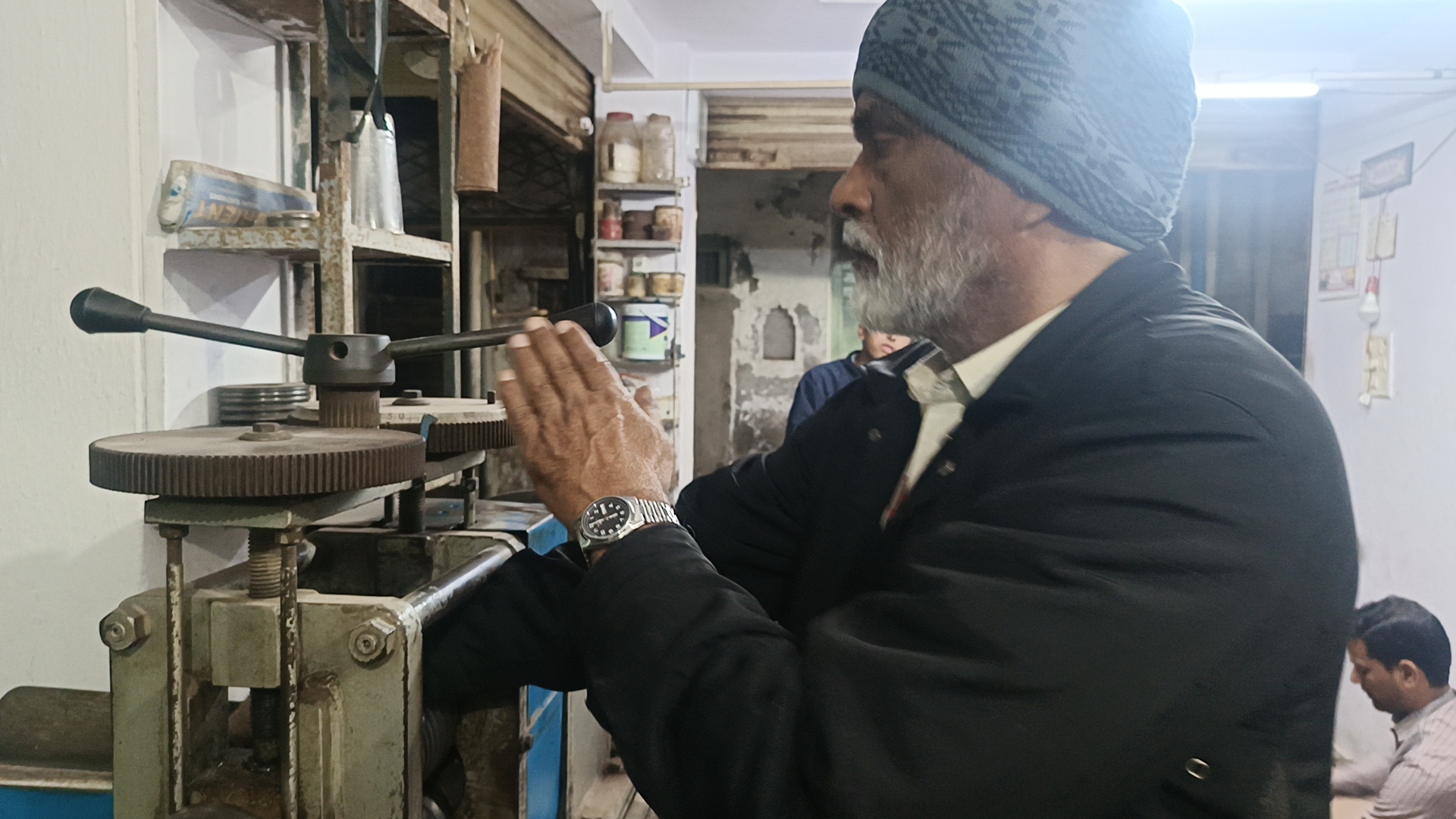
However, after more than half a century, they remain simply skilled craftsmen. Their work is limited to sustain their families. Seeking more secure and rewarding careers, the next generation is now stepping away from the family tradition. They say that the job only brings enough to survive, not thrive.
Eliasuddin explains that they specialise in 'Pola' work — a technique that involves crafting silver jewellery, particularly popular in rural areas. "We are from Losal village in Rajasthan's Sikar district. We came from Jaipur to Rajgarh about 55 years ago and began our work in Biawara city. Local gold and silver traders provide us with work, and we design jewellery using our skills. We do not have logos or names on our designs. Most of our work is done by hand, with very little use of machinery. We even create our own tools by hand, as we often need specific designs that are not available in the market," he says.
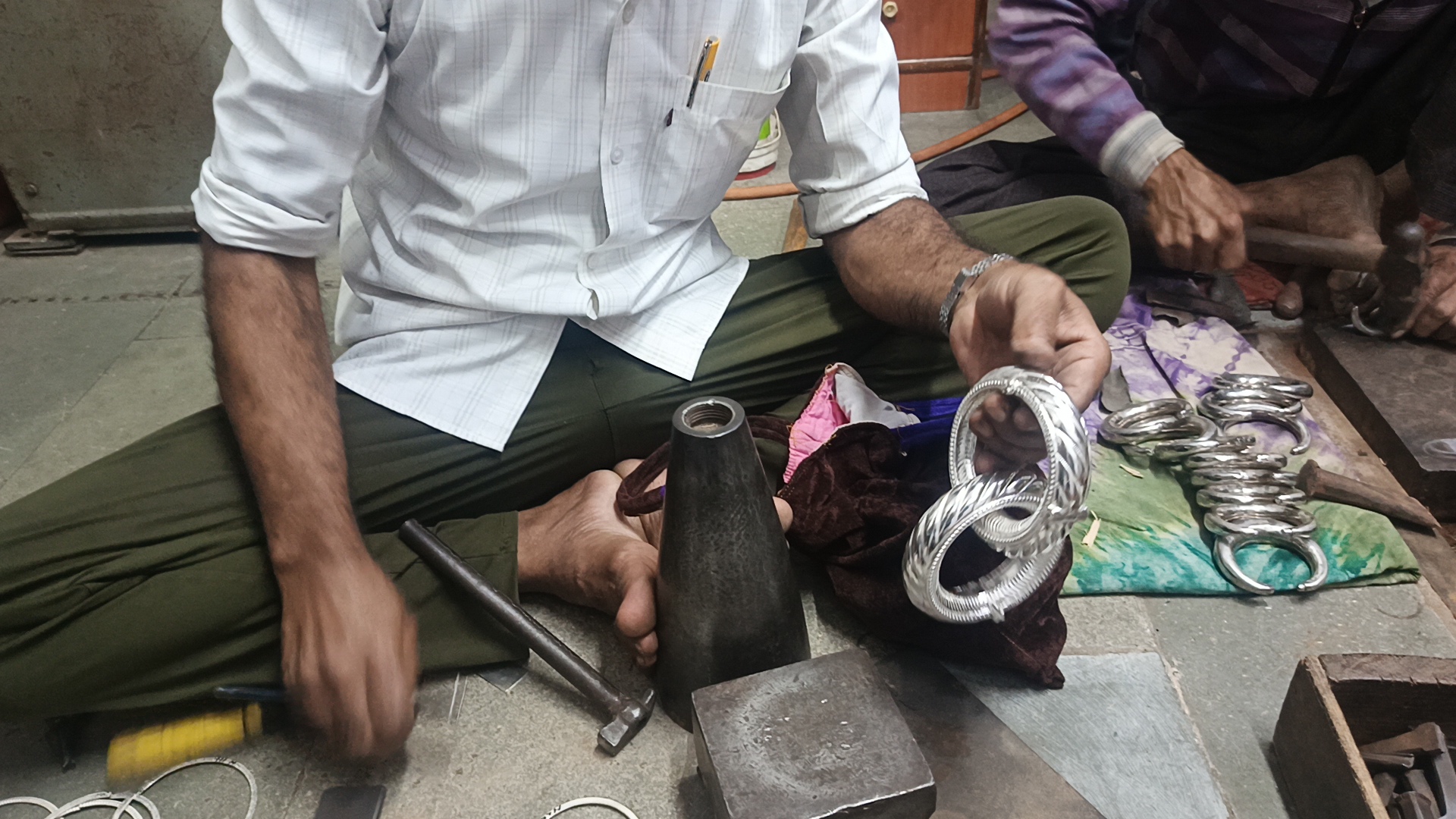
The family has been in this craft for six generations, with Eliasuddin's sons and brothers continuing the work. Now 97, his father is still an expert in the art. Despite this legacy, their financial situation has remained difficult. "We dedicated our entire lives to this craft, but we have never been recognised for it. We never achieved the success we thought would come with our hard work. No matter how much we poured into it, we never got the recognition we deserve," he says.
Altaf Hussain, Eliasuddin’s eldest son, adds, "We work hard, but we are just making ends meet. I am sending my son to pursue an MBA, and I hope the next generation steers away from this field. My father brought us here 55 years ago, and today, we still operate our business from a rented shop."
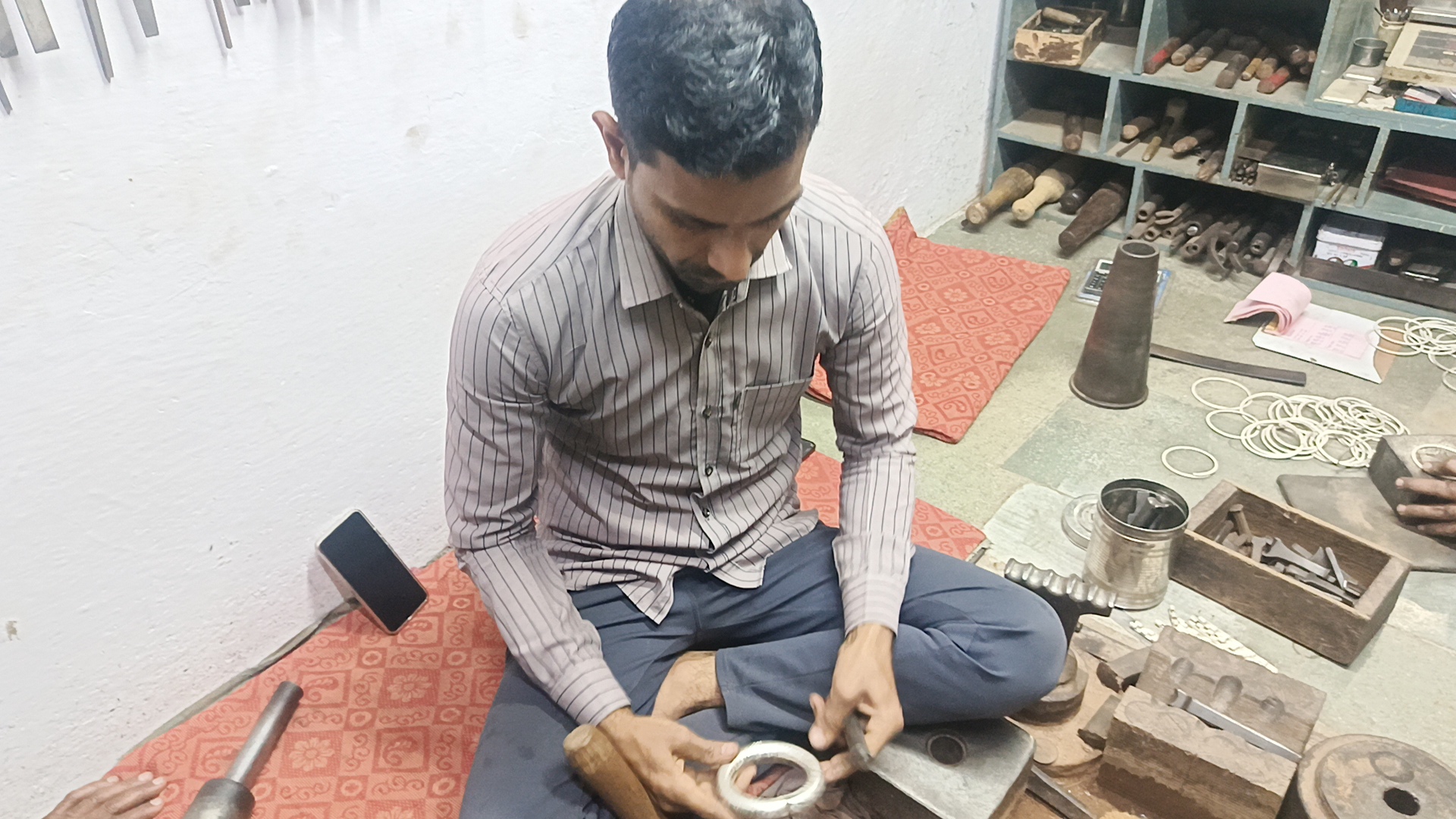
Meanwhile, sharing his concerns, Eliasuddin’s younger son, Irshad, says, "I have two young children who go to school, but we cannot afford to send them to a private school because their fees are too high. Despite this, we continue to hope they will study and grow, as we never received the recognition or success, we feel we deserve from this work."
All Photographs by the author
